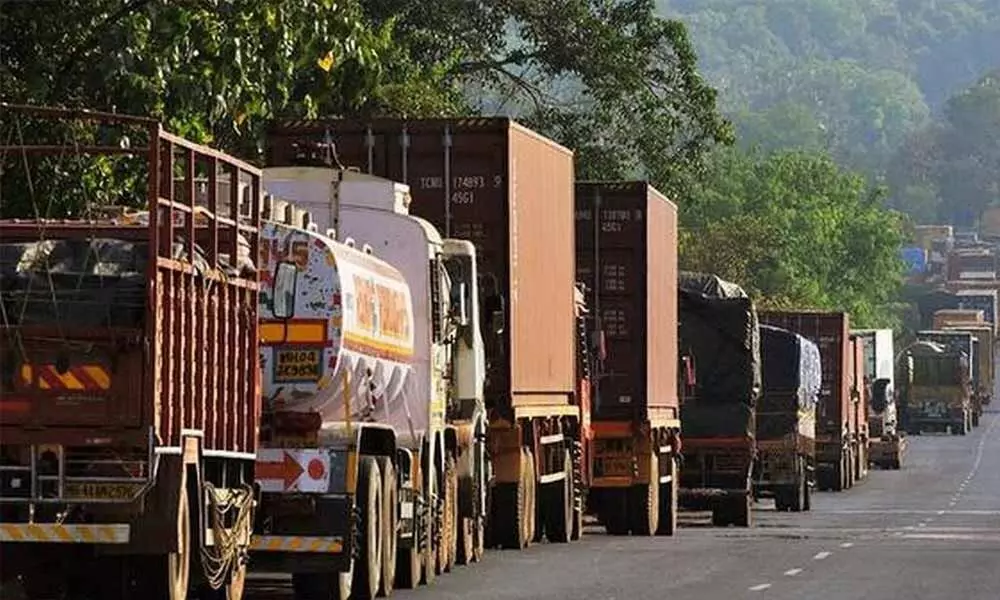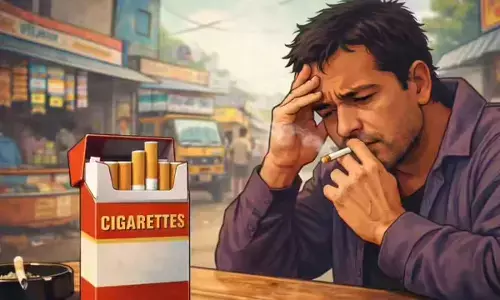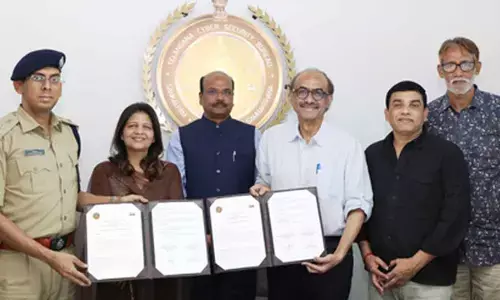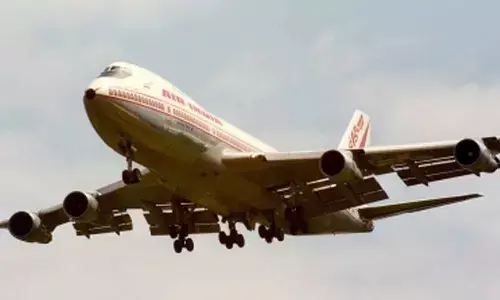When key wheel of economy came to a halt

- While Centre has stepped in to support migrant workers, truck drivers are left in lurch, say transport bodies
According to official figures, three million trucks were estimated to be on the road when the lockdown was announced with four hours' notice. No fewer than 150,000 trucks are now parked across the country, unable to transport the goods they carry. However some industry experts say there might be up to 500,000 immobile trucks
"Most of the drivers have left for their respective hometowns or nearby transport hubs due to non availability food and water. There is an urgent need to bring back the drivers to the wheel. An announcement requesting drivers to return and serve the country should go from the Prime Minister's office which will have a greater impact. Facilitate their movement and permit them to meet a police station and based on their driving license they may be moved to the transport hub through police vehicles."
These points submitted by the All India Transporters Welfare Association on April 2 to the central government's Task Force on Logistics team sum up the predicament of the truckers community, the vital cog running the wheels of the economy and sustaining the supply chain. They have sunk into oblivion and have fallen on bad days amid clapping posing a challenge to the supply chain across the country ravaged by the coronavirus.
According to official figures, three million trucks were estimated to be on the road when the lockdown was announced with four hours' notice. No fewer than 150,000 trucks are now parked across the country, unable to transport the goods they carry. However some industry experts say there might be up to 500,000 immobile trucks.
There are 12 million registered goods-carrying transport in India.Truckers move freight across India's critical inter-and intra-state traffic network. Trucks account for 69 per cent of country-wide freight traffic in India, according to the Economic Suvey 2018-19, and contribute about 3.06 per cent to gross value addition. Vipul Bansal, honorary general secretary of the Bombay Goods Transport Association, said there was enormous confusion in the supply chain as the truckers were unable to deliver goods because the warehouses were locked.
Naveen Kumar Gupta, Secretary General of the All India Motor Transport Congress, an umbrella organisation of transport companies representing 9.3 million truckers across India, in a news item published in the South China Morning Post states that, "This [lockdown] is not smooth on the ground level. Incidents of police high-handedness and harassment have been reported. Drivers are being ill-treated and have been penalized. "Vehicular movement has slowed down", Gupta said and added that migrant workers are being provided relief on the directive of various governments but the truck drivers on the move are silent sufferers as dhabas and wayside restaurants are closed. Suffering from pangs of hunger, uncertainty and fear of the pandemic truckers are clueless about the going on and the panicky situation. TransportMitra Services founder Selvan Dasaraj described truckers as "soldiers on Indian highways", and suggested to the Task Force on Logistics to consider setting up 250 dhabas and provide proper rest room facilities with toilets for car carriers moving across India from manufacturing sites to dealer's network across the country.
According to Selvyn, who participated in the video conference of the Task Force, N Sivasailam, Special Secretary, Logistics, Department of Commerce, Government of India, described the situation as dynamic and stated that the Centre was reviewing the situation on an hourly basis to make sure the supply chain is back on track.The video conference was attended by 500 representatives from the logistics and transport sector. The seaports, railways and airport freight have been activated, he revealed.
He said that currently, top priority is being accorded to movement of pharmaceuticals and agriculture and added that issues with the State governments and the operational challenges will be sorted out soon. He disclosed that airports, seaports and railways have been activated for seamless cargo movement. Dr P D Vaghela, Secretary, Ministry of Chemicals and Fertilisers, Department of Pharmaceuticals has sought the intervention of States to activate the badly affected courier services which will impact the availability f medicines in tier 1 and tier 2 cities and rural areas. Further, he urged that auxiliary suppliers, which provide inputs like packaging material, excipient (material required for manufacturing of tablets and capsules) and spare parts, should be declared as essential services so that pharmaceutical companies would face raw material constraints.
While, a few states like Telangana have been proactive to ensure seamless supply of essentials, lack of coordination between and among a few States, the recalcitrant stand of a few State governments to disallow trucks into their respective states is proving to be yet another hurdle. The central government, in its order issued on March 29, has allowed all types of goods to be transported without distinguishing between essential or non-essential products, but this notice appears to have had little impact on the ground. A case in point is the recent blocking of transport movement by Karnataka and Kerala. On the contrary, senior ministers in Telangana intervened to resolve the issue of stranded truckers along the Maharashtra border.
(The author is Head, Communication and Journalism Department,Osmania University)

















